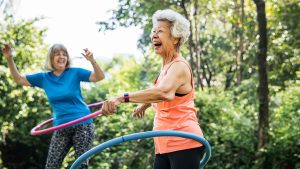By Brooke Bulloch, RD.
Physical activity looks different for everyone – your body is one of a kind and movement is meant to be a joyful celebration of what our bodies can do. Whether you’re a seasoned athlete or taking on a new-to-you activity, understanding the role of nutrition in exercise performance and recovery is so important for optimal body function and overall health.

Nutrition factors generally associated with fatigue and reduced exercise performance include:
- Depletion of stored carbohydrate in the muscles
- Dehydration
- Improper fueling and/or improper recovery
What are Macronutrients?
Macronutrients include carbohydrates, protein, and fat and they are the nutrients that we use in the largest amounts. Although many foods will overlap in macronutrients, here is a list of foods that predominantly make up each macronutrient:

| Carbohydrates | Protein | Fat |
| Whole fruit & vegetables | Fish & seafood | Canola oil, Extra virgin olive oil, or avocado oil |
| Fruit juice | Chicken & turkey | Peanut butter or other nut butters |
| Dried fruit | Lentils & beans (kidney beans, chickpeas, black beans) | Fresh avocado |
| Bread, bagels, pitas, tortillas | Eggs | Salad dressings 7 mayonnaise |
| Rice | Lean beef, pork or lamb | Nuts & seeds (almonds, cashews, ground flaxseed, chia seeds, pumpkin seeds) |
| Pasta | Cow/goats milk | Limited use of butter or coconut oil |
| Quinoa | Yogurt | |
| Pot barley | Soy beverage | |
| potatoes | Peanut butter | |
| Sweet potatoes | ||
| Beans & lentils | ||
| Granola bars | ||
| Jam or honey | ||
| Chocolate milk | ||
| Sport drinks, gels, or gummies |
What to Eat Before Exercise
Carbohydrates are your brain and body’s preferred source of fuel and have been shown to improve skill and concentration, reduce fatigue, improve work rates, and protect muscle from break-down.
Eat a meal 2-4 hours prior to your activity that includes a balance of carbohydrates, protein, and a small portion of fat. For example:
- A whole grain tortilla wrap filled with protein (e.g. egg salad, chicken, or hummus) and vegetables. For additional carbohydrates add a piece of fruit on the side.
- Meat with roasted sweet potato and steamed broccoli
- Asparagus and Quinoa Salad with grilled chicken or chickpeas
- Tuscan Lentil Stew and a bun
About 1 hour before exercise, check in with your hunger status and your energy levels. You may benefit from a snack before your workout. Note, if you’re working out first thing in the morning, a snack may be more realistic than a full meal. For example:
- Dried fruit and nut bar
- Yogurt and fruit
- Cold cereal with cow’s milk or soy beverage
- Muffin with cheese
- Peanut butter and banana sandwich
It’s a good idea to be well hydrated before exercise. A simple way to check hydration status is by the colour of your urine. Pale yellow indicates good hydration status.

Do I Need to Fuel During My Activity?
As a general guideline, if your activity runs less than 60 minutes, the carbohydrates you had prior to exercise will support your energy needs and protect muscles from breakdown. The goal is to stay hydrated with water, using thirst to guide you.
What to Eat After Exercise
After activity, the goal is to replenish muscle glycogen stores (ie. the carbohydrates stored in muscle that may have been used up), to repair damaged muscle, and to support muscle growth. In order to do this, the body requires carbohydrates and protein.
Evidence shows that high quality proteins are effective for maintenance, repair and growth of muscle. High quality proteins include:
- Animal products – particularly meat, dairy, eggs, poultry, and whey or casein-based protein supplements (ideally third-party tested for safety).
- Soy protein – soy beverage, edamame, and tofu.
Ingestion of 15 to 25g of high-quality protein within 2 hours of exercise is optimal, particularly for higher intensity workouts. Examples of post-workout snacks/meals include:
- 500ml chocolate milk or soy beverage
- Mediterranean Chicken Kebobs with rice, quinoa or flatbread
- Tofu stir fry with vegetables and rice
- Cheese pizza and raw veggie sticks
These recommendations are based on the Dietitians of Canada (2016). Nutrition and athletic performance: position of dietitians of Canada, the academy of nutrition and dietetics, and the American college of sports medicine. For more specific information consult a registered dietitian for a personalized nutrition plan.

Sign up for the monthly Great Food Grown Here newsletter and stay in touch!


